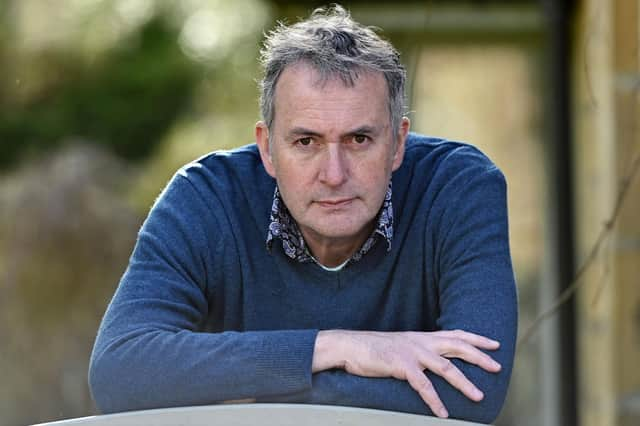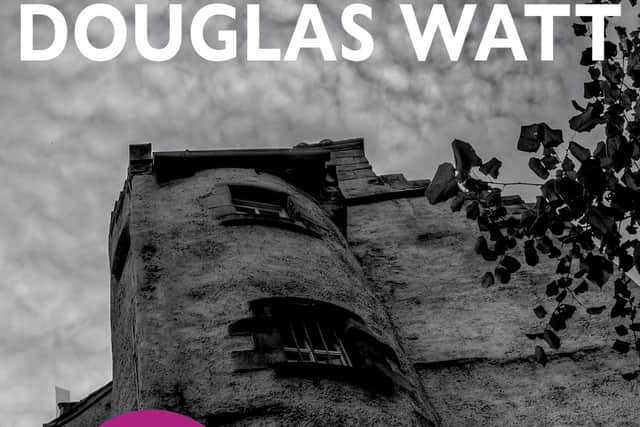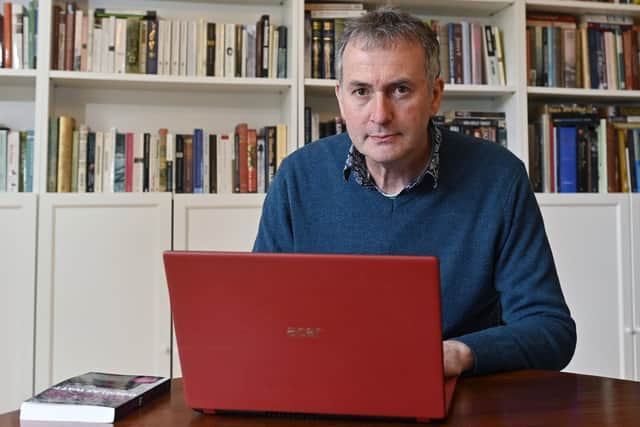Edinburgh author Douglas Watt brings sights and smells of Capital’s 17th century Old Town alive in new crime thriller


Now 55, the Edinburgh-born author who lives in Pathhead, Midlothian, recalls, "As a really young kid I remember getting a book called The March of Time, about the Roman and ancient worlds. I think it was the pictures in that book that actually got me into history, that and being brought up in Edinburgh; I have always been aware and fascinated by the historical intensity and congested feel of the Old Town."
He continues, "But as a child I was more influenced by film and television than books; Doctor Who, horror films, Dracula, the Wolf Man, that sort of thing. Then when I was 18, I read one of my grandfather's books called Glencoe: The Story of the Massacre, by John Prebble. It amazed me, this was a real world that had only happened 300 years or so ago, here in Scotland. It seemed so different, even though there were similarities, and that got me into Scottish history in a big way. Ever since I've been fascinated by that late 17th century period and the backdrop of Glencoe, Jacobitism and the big issues of that time."
Advertisement
Hide AdAdvertisement
Hide AdA Killing in Van Dieman’s Land, the fifth and latest installment of Watt’s historical crime series, transports readers to the Old Town of 1690, where the writer’s popular double-act of investigative advocate John MacKenzie and reluctant side-kick Davie Scougall are faced with the murder of a pious merchant, who may not have been all he appeared.


The author, educated at Daniel Stewart's from the age of five, was brought up in Cramond - "Cramond Kirk actually appears briefly in A Killing in Van Dieman's Land," he chips in - until the family moved to Aberdeen, returning to the Capital aged 12 when he attended Stewart's Melville, before studying history at Edinburgh University.
"I did a degree in history and then a PhD on Edinburgh Lawyers and Highland Chiefs of the 17th Century, so I knew that subject very well,” he says, adding, “and that became Death of a Chief, the first book in the series, about the murder of a Highland chief in Edinburgh."
Each of the Mackenzie/Scougall books stand alone but together they chart a journey through a particular period of Scottish history, each one taking place over consecutive years from 1686.
Advertisement
Hide AdAdvertisement
Hide Ad"What's so exciting is that having studied this period from the academic angle, you can lose sight of the individual lives being lived, so the interesting thing for me is following Scougall and MacKenzie as they live through history, year after year, seeing how they respond to the big events of the time. Events like the glorious revolution of 1688, the third book, Pilgrim of Slaughter, was about that.


"The last book, The Unnatural Death of a Jacobite, was about Jacobitism, and this present book is about the uncertainties around religion as people begin to question the bible – you see the beginnings of the Enlightenment and the reaction to that from those who fear the new ideas. In 1690, Edinburgh was a pressure cooker as the new thinking threatened the world view of the Presbyterians who saw Satan behind the unleashing of atheism, an abhorrent idea at the time."
It's against that backdrop that MacKenzie an Scougall must solve what the author describes as "a closed entity murder mystery, focused on a house haunted by its past."
He explains, "Before the New Town, everyone lived on top of each other in the Old Town, you can see from 17th century maps where they were really packed in. It was very difficult to get privacy and there was a lot of conspiracy, whether it was political clubs linked to Jacobitism or the philosophical debate going on in taverns. The new book reflects that intense atmosphere as it affects one particular household living in Van Dieman's Land, which is loosely based on Gladstone's Land at the top of the High Street."
Advertisement
Hide AdAdvertisement
Hide AdMixing real historical characters with his fictional creations allows Watt to bring an extra depth of detail to his novel. One character returning in the new novel is powerful business woman, Mrs Hare. Watt reveals, "She is based on a real person, Mary Erskine, who was quite a successful money lender who left a sum of money which ultimately led to Mary Erskine's School. So the books are a mixture of real historical figures, like Dalrymple, the Lord Advocate, who would later become infamous for his part in the massacre at Glencoe, and fictional figures I have created for the story."
A financial writer by day, when not in lockdown Watt normally pens his fiction during his lunch hours.
"In the day job I write about stock markets and the day to day stuff of the financial world, so I've always seen my fiction as an escape from work. I'd write for an hour in my lunchtime, just sit in a cafe and time travel back to the 17th century. Normally I work in St Andrew's Square so I can walk up to the High Street in 10 minutes, the centre of my imaginary world when writing these books. To wander up there now with no tourists, you sense the past very powerfully."
A sixth novel in the series is already on the way with a seventh also beginning to take shape in his head. Both will take Watt’s investigators further afield.
Advertisement
Hide AdAdvertisement
Hide Ad"MacKenzie and Scougall head off to the far west of Scotland in book six and, in the seventh, maybe they'll go down to London, but they will always come back to the Capital," he says, "Edinburgh is the anchor of the stories."
Tomorrow, read the first of four exclusive extracts from A Killing in Van Dieman’s Land, by Douglas Watt